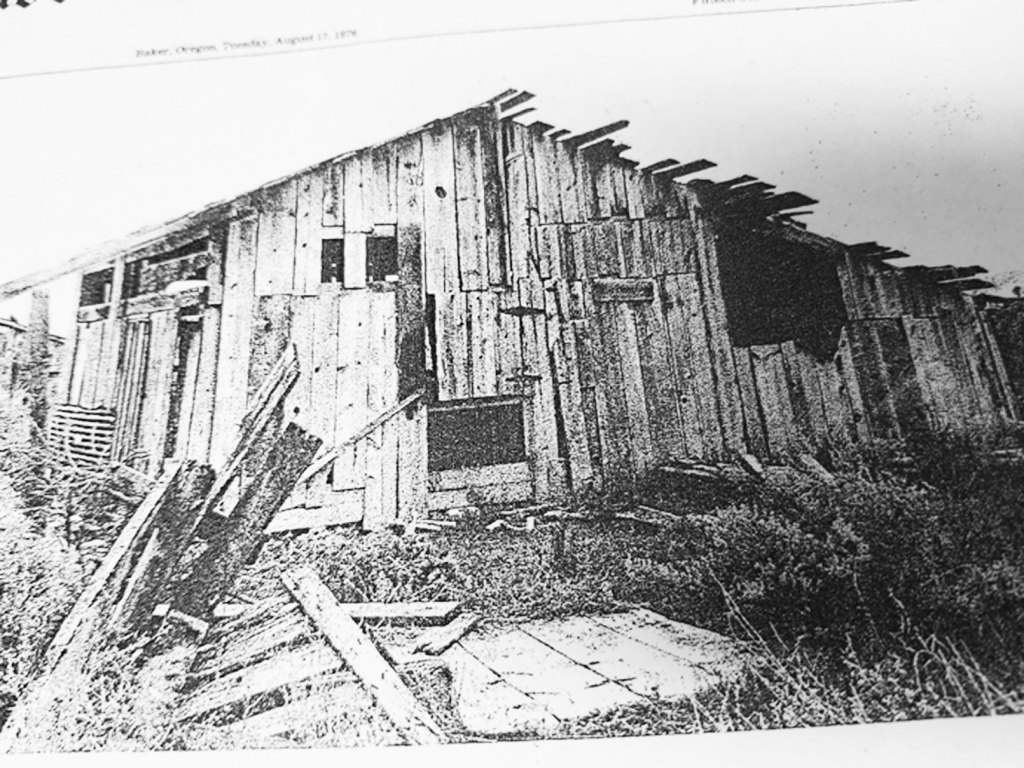Man convicted of double murder in Baker County in 1976 dies at Oregon State Penitentiary
Published 2:17 pm Wednesday, December 4, 2019

- The front page of the Aug. 17, 1976, issue of the Democrat Herald (now Baker City Herald) included a photo of the abandoned farm building near Baker City where Buzz and Frank Colton found the bodies of murder victims Darlene Hull and Tamera Shove on Aug. 14, 1976. Donald Douglas Hull was convicted of the murders.
A man convicted of a double murder in Baker County more than 40 years ago died Wednesday morning in the infirmary at the Oregon State Penitentiary, where he was serving a life sentence.
Donald Douglas Hull, 79, had been in custody at the state penitentiary in Salem since Jan. 24, 1977, according to a press release from the Oregon Department of Corrections.
Hull was convicted of the murder of Darlene Hull, 31, and her daughter, Tamera Shove, 13, on Aug. 13, 1976.
Darlene Hull was formerly Donald Hull’s sister-in-law, having divorced his brother in 1975. Donald Hull had also lived with Darlene, according to contemporary newspaper stories.
Buzz Colton of Baker City remembers the murder case, and probably more vividly than most people.
Colton and his father, Frank Colton, were members of the Baker County Sheriff’s Posse in August 1976, and they found the bodies of Hull and Shove in what Buzz describes as a manger on an abandoned farm on the east side of Baker Valley near Sunnyslope Road.
Buzz, now 84, said Sheriff Delmar Dixon assigned him and his father, on Aug. 14, 1976, the day Hull was arrested in Portland, to search the area east of the Baker City Airport because it was one that Hull was known to frequent.
Another was the Virtue Mine area south of Flagstaff Hill, where the Oregon Trail Interpretive Center now stands.
Colton said he and his father decided to start their search at the former Opal Cooper farm near the intersection of Sunnsylope Road and Airport Road, about four miles northeast of Baker City. They parked near the empty house on the farm in the early afternoon.
Buzz said he and his father peered into the house but saw nothing unusual.
They walked to a small shed nearby. Buzz said he went to the rear of the structure and looked through a gap in the weathered boards of the dilapidated building.
He saw two bodies.
Buzz yelled for his father.
They ran to their vehicle and used the CB radio — no cellphones during the Ford administration — to call the Sheriff’s Office.
Buzz said he and his father spent most of the rest of the day stationed at the start of the road leading to the farm, making sure only official vehicles could enter.
He recalls that they were relieved around dusk by another pair of Posse members.
Buzz said Posse members participated in the subsequent search for the .22 caliber revolver that police believed Hull had used to shoot Darlene Hull and her daughter.
He said searchers eventually found the gun in one of the quarry ponds east of Interstate 84.
Buzz said he and his father testified during Hull’s trial.
Buzz said that although he knew who Donald Hull was in 1976, he wasn’t acquainted with the man.
Buzz said he was surprised to learn this week that Hull had died in prison.
“I figured he had died by now,” Buzz said during an interview at his Baker City home on Thursday afternoon.
According to stories from the Baker Democrat Herald (now the Baker City Herald), Dr. John Higgins, the Baker County medical examiner, determined that both victims had been shot once in the head. A small-caliber bullet was recovered from each of the bodies.
A witness at Donald Hull’s trial testified about seeing him on the morning of the murders in Washington Gulch, about 5 miles west of Baker City, beating on a young girl and chasing her in a blue pickup truck, according to the transcript of an Oregon Court of Appeals decision from May 8, 1978, in which the Court rejected Hull’s appeal of his murder convictions.



